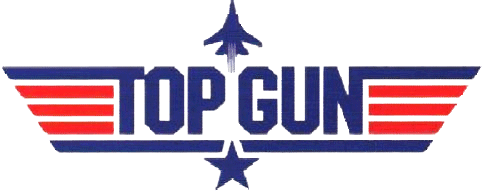The College Softball Recruiting Process
Below is some information to help you with the recruiting process, including the NCAA Rules Timeline, Frequently Asked Questions, Do’s & Don’ts and the Realities of Recruiting.
THE RECRUITING TIMELINE
Prior to the Junior Year in High School
At the beginning of your ninth grade year, you become a prospective student-athlete. All rules regarding recruiting go in effect at this time. You may visit an institution at your own expense as often as you wish, and all contacts with a coach must be on the college campus. The athlete can call the coach, but the coach cannot return the phone-call or email (except Division III where the coach may call or write starting with the athlete’s first year in high school).
Junior Year of High School
September 1: Coaches may send athletes recruiting letters, emails and information about the athletic program. Coaches may not call prospects; however, until after July 1 for Division I and June 15 for Division II. (See Division III exception above).
Early in the Junior Year
- Take the ACT and/or SAT and request scores to be sent to the Eligibility Center
- Begin your amateurism questionnaire
- After completing your junior year, request your high school to send your transcript to the Eligibility

 Center.
Center.
Upon Completion of Junior Year
College coaches may initiate in-person, off-campus contacts for Division I schools as of July 1; for Division II, as of June 15; for Division III, as of the end of junior year. Division I and II coaches are allowed three total contacts with a prospect or her family members during her senior year in high school. Coaches may only call prospects once a week, and these call include conversations with other family members.
Senior Year of High School
First Day of Classes: On-campus official visits may begin. Before a college may invite you on an official visit, you will have to provide them with a copy of your high school transcript (Division I only) and SAT or ACT score. You are limited to one official visit at five different institutions.
National Letter of Intent Signing: Early signing begins the second Wednesday in November of your senior year. The late signing period begins the second Wednesday in April of your senior year.
Near or at the End of your Senior Year: Complete amateurism questionnaire. Guidance counselor must send final transcript with proof of graduation to the Eligibility Center.
Frequently Asked Questions:
When should I contact colleges?
The winter of your sophomore year. It is never too early to start the recruiting process.
How do I start the process?
Begin by making a list of colleges you are interested in attending; make it a broad list. There are many opportunities to play softball in college, so don’t limit yourself. Do your homework and send an introductory letter to those colleges. Make sure to include: Your return address, your graduation year, a brief introduction about yourself, your summer team’s name and your high school.
Make sure each letter is personalized (e.g., goes to the current head coach and that you have proofread it carefully). Additional items to include are your player profile, transcript, game schedule and skills video DVD or internet video link. Make sure you register with the NCAA Eligibility Center; see your guidance counselor for assistance. Make sure you take the SAT and ACT early in your junior year.
What should be in my skills video?
Your video should be five to ten minutes long’ it should include an introduction that says who you are and:
- Hitting off a tee, machine, front toss or pitcher; video from the side and behind
- Field your position from the front and the side. Make sure to show fielding and throwing
- Pitchers should throw all of their pitches, and the video should include shots from behind the catcher, behind the pitcher and from the side
- No need to get fancy or include game footage; keep it short and simple. Remember coaches have a lot of videos to watch
- Make sure your graduation year is clearly marked on the video
For more information check out Combine Sports who specialize in athletic recruiting videos.
Should I attend college camps?
Yes. This is a great way to be seen and to figure out if you will fit in with a certain team or coaching philosophy. This also provides you with an opportunity to learn and develop as a player. Many colleges have both summer and winter clinic and camp opportunities.
The Do’s & Don’ts
Don’t approach a college coach while playing in a tournament.
A college coach cannot speak to you until after your team has completed play in the tournament for the weekend and only after June 15 for Division II or July 1 for Division I after your junior year. A college coach may speak to your parent or guardian before the completion of the tournament. However, doing so will count as one of the three allowed face-to-face contacts between you and the coach. Even if you are not playing in the tournament but are watching, a college coach cannot talk to you or your parents before July 1 after your junior year in high school. Just to be safe, let the coach approach you when he or she is allowed to do so.
It’s generally not a good idea to try to hand your video or player profile to a college coach at a tournament. If you can’t mail this information, ask your summer ball or high school coach to give it to the coach.
Do stay on top of your grades
First and foremost, you are attending college to receive an education. Coaches will look to see if you are working hard in the classroom as you are on the field. Check with your high school counselor to make sure you are taking the right core courses (16 core courses for Division I, 14 core courses for Division II (16 required after August 1, 2013 and after) and that your GPA is where it needs to be. Refer to www.ncaa.org for core course descriptions and required GPA. Be sure to enter “9999” code when registering for the ACT or SAT. This requests for your official test scores to be sent directly to the Eligibility Center.
Realities of Recruiting
- Of the over 1100 college fielding fastpitch softball teams, only about half offer any form of softball scholarships. This means that the majority of girls playing softball in college right now aren’t receiving athletic-based aid.
- Even at the “fully-funded” programs (meaning 12 full scholarships for Division I and 7.2 for Division II) most players on the team will get only partial scholarships and some may have to make the team as walk-ons.
- Without a doubt, every college-bound softball player would love to be offered a full athletic scholarship. But unfortunately, the competition for athletic aid is getting tougher each year. Be prepared to look at all of your financial aid options.
If you have any more questions about recruiting you can visit:
2011-2012 Guide for the College-Bound Athlete
Becoming a Student-Athlete
College Sports Scholarships
SAT
ACT




